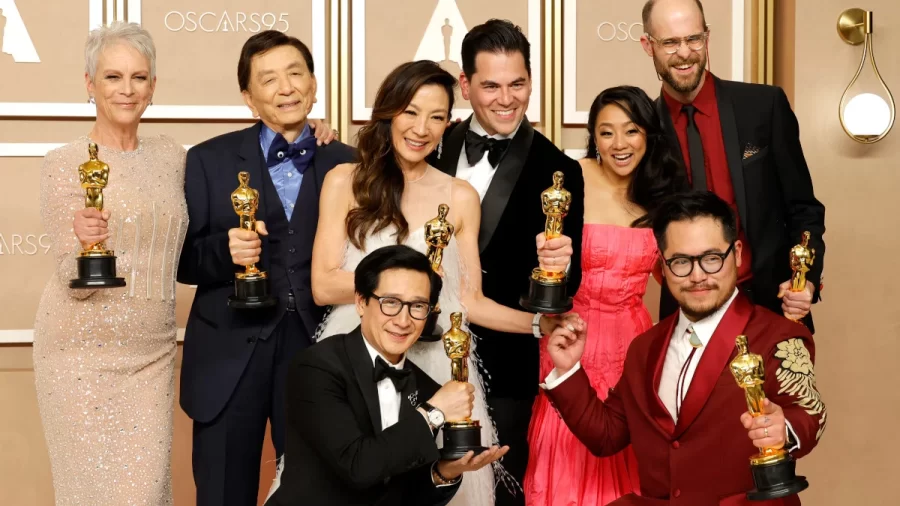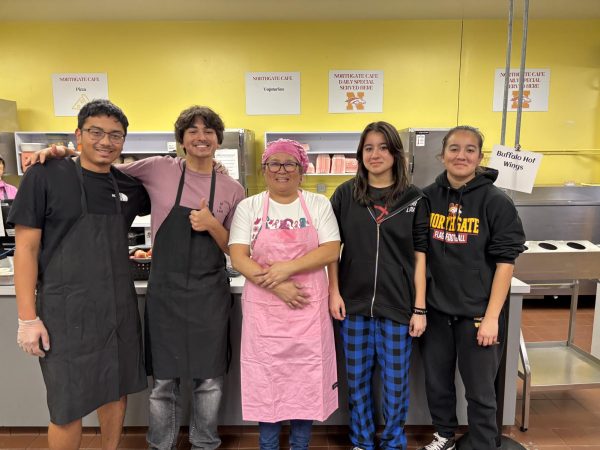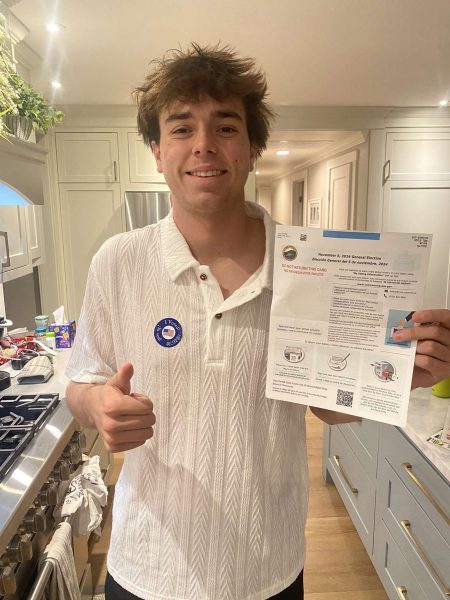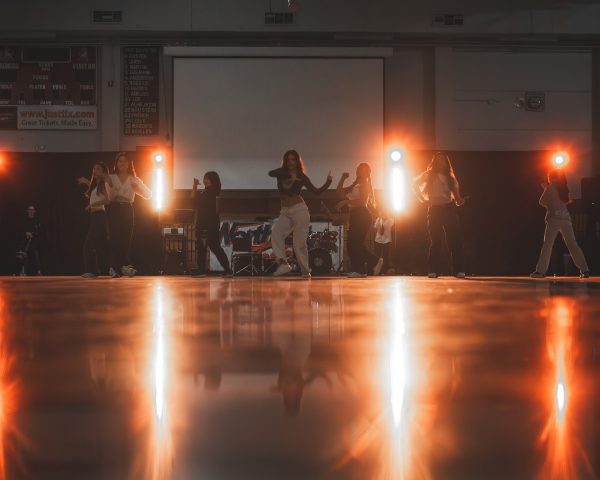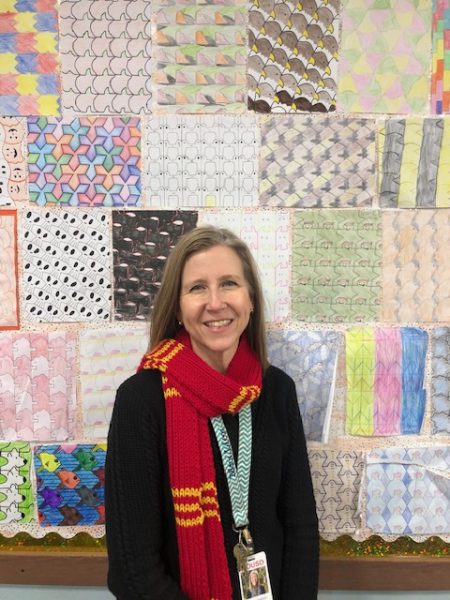Why Everything Everywhere All At Once makes my Asian-American self proud: A Film Review
“Scrolling through a media of movies, I came across this film. With nothing better to do, I clicked on the ‘play’ button on my screen. For the next two hours and twenty minutes, I laughed, cried, screamed, and cried some more. When the end credits rolled onto the screen, not only was my house quiet, but I was quiet as well.” -Emily Chao
Sentinel staff writer Emily Chao describes the impact of Everything Everywhere All At Once, a comedy-drama, adventure/sci-fi film featuring Michelle Yeoh, center, who earned Best Actress , a first for an Asian-American. The film, directed by Daniel Kwan and Daniel Scheinert, captured seven Academy Awards.
The 2023 Oscars ceremony took center stage on Sunday, March 12 at the Dolby Theatre in Los Angeles, but so did history when Michelle Yeoh became the first-ever Asian actress to win an Oscar for “Best Actress” for her leading role in Everything Everywhere All At Once, a comedy-drama, adventure/sci-fi film directed by Daniel Kwan and Daniel Scheinert.
It would be an understatement to say this film dominated the Oscars that night. Nominated in 11 categories, Everything Everywhere All At Once emerged as the most nominated film that night. The film captured seven trophies, including but not limited to: Best Director (Daniel Scheinert and Daniel Kwan), Best Picture, Best Supporting Actor (Ke Huy Quan), and Best Original Screenplay (Daniel Kwan and Daniel Scheinert). With its wins, it has become the most awarded film of all time. For a masterpiece of a film, to say the least, I am not surprised.
Everything Everywhere All At Once follows the story of a Chinese-American immigrant mother who runs a laundromat with her husband while struggling to make ends meet. Not only that, she has to deal with being audited by the IRS. She soon finds herself thrown into a multiverse adventure where she must take matters into her own hands to save all the universes from dangers that threaten the balance of her life and of those around her.
My first time watching the film, I was wrapped in a layer of blankets on my sage green couch in the living room and the sun had gone down a couple hours ago already. The house was quiet and I was bored. Scrolling through a media of movies, I came across this film. With nothing better to do, I clicked on the ‘play’ button on my screen. For the next two hours and twenty minutes, I laughed, cried, screamed, and cried some more. When the end credits rolled onto the screen, not only was my house quiet, but I was quiet as well. The second time I watched this film, just a little over two weeks ago, I was in a similar setting as before, but now with an additional presence and comfort of some of my favorite people – my friends. Each one of us from different cultural backgrounds, I got to share a beautiful moment with them. They loved it, as well.
The film perfectly embodies what it means to grow up in an Asian household as an Asian-American with Asian immigrant parents. It heavily touches on topics of generational trauma, mother-daughter relationships, mental health, and human connection, topics which many individuals of this human population – myself included – have encountered. The film tops everything off by adding a light comedic air to its storyline, as well as adding a deeper dynamic to the characters, contrasting the usual “black or white” characters that many films usually present.
Everything Everywhere All At Once broke the common traditional format of cinematography, while daringly discussing the strict traditions that many immigrant Asian households are built on. The focus on Evelyn Wang and her daughter, Joy, reminded me of the relationship between me and my mother. The constant bickering back and forth, the subtle backhanded comments Evelyn makes about Joy, and the disconnect from both sides in their familial relationship are just some of the common things I have seen from my family, and various other Asian American families. Although they experience pain, their bond is filled with love that can’t be explained with words, only actions.
Viewers follow Evelyn and Joy’s journey with overcoming their own trauma and conflicts, and the attempt to battle generational trauma is wholeheartedly fought. Generational trauma is another prevalent issue in the Asian-American community. It has fueled hate, loneliness, and mental health issues. Getting passed down generation after generation, it eventually becomes a never-ending cycle.
However, through the film’s dynamic characters and emotionally-moving plot, human connection is portrayed in a beautifully humane way that emphasizes the importance of what it truly means to live. To look out for one another, to slow down and live in the moment, and to give one another grace, just like Waymond Wang – the husband of Evelyn and father of Joy – says in the film, “The only thing I do know is that we have to be kind. Please, be kind. Especially when we don’t know what’s going on.”
During Yeoh’s speech on stage at the Oscars, she exclaimed, “For all the little boys and girls who look like me watching tonight this is a beacon of hope and possibility,” continuing with: “Ladies, don’t ever let anyone tell you you are past your prime.” Although I’m a high school junior, I’m also one of those “little girls”. Truly an inspirational moment for me and many others.

